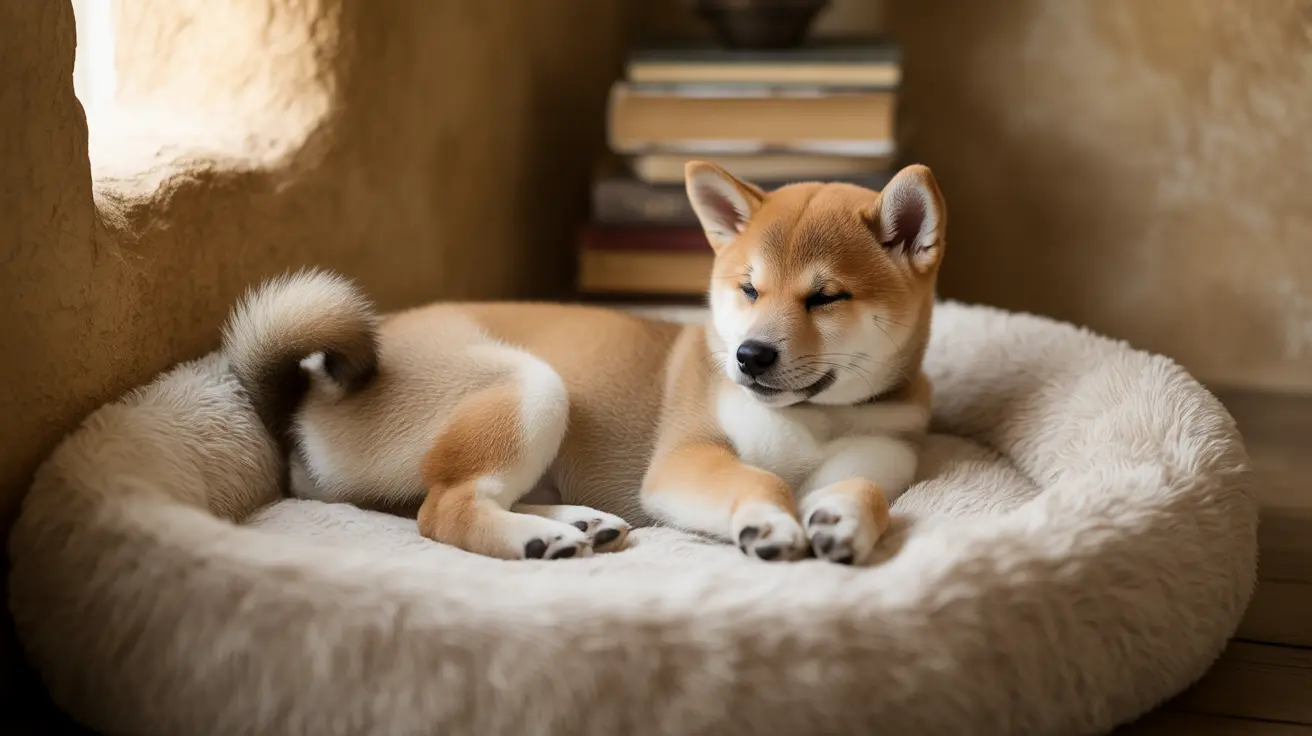Bringing a new puppy home is exciting, but managing their sleep schedule can be challenging for first-time pet parents. Understanding your puppy's sleep schedule is crucial for their development, behavior, and overall well-being. This comprehensive guide will help you navigate your puppy's sleep needs and establish healthy rest patterns.
Just like human babies, puppies need significantly more sleep than adult dogs to support their rapid growth and development. Let's explore everything you need to know about creating and maintaining an effective puppy sleep schedule.
Understanding Puppy Sleep Requirements
Puppies between 8 and 12 weeks old need an astounding 18-20 hours of sleep per day. This might seem excessive, but it's essential for their physical growth, brain development, and emotional well-being. During these early weeks, your puppy will typically only be awake for 4-6 hours total, spread throughout the day in short bursts.
As they mature, their sleep needs gradually decrease. By 20 weeks, most puppies require 13-15 hours of sleep daily, slowly approaching the adult dog average of 12-14 hours.
Creating an Age-Appropriate Sleep Schedule
Different age groups have distinct sleep requirements and patterns:
8-12 Weeks
- 18-20 hours total sleep needed
- 5 daily naps, lasting 30 minutes to 2 hours each
- 6-8 hours of nighttime sleep with potty breaks
12-16 Weeks
- 16-18 hours total sleep needed
- 4 daily naps
- Longer stretches of nighttime sleep
16+ Weeks
- 14-16 hours total sleep needed
- 2-3 daily naps
- Better ability to sleep through the night
Establishing a Consistent Sleep Routine
Creating a predictable daily schedule helps your puppy develop healthy sleep patterns. Start by:
- Setting consistent feeding times
- Scheduling regular potty breaks
- Planning exercise and play sessions
- Maintaining a regular bedtime
- Creating a dedicated sleep space
The Science Behind Puppy Sleep
Puppies experience sleep cycles similar to humans, though much shorter in duration. Each cycle lasts about 45 minutes and includes both REM and non-REM sleep. During REM sleep, you might notice your puppy twitching, paddling their legs, or making small noises – all completely normal behaviors that indicate healthy brain development.
Creating an Optimal Sleep Environment
Your puppy's sleep space should be:
- Quiet and dimly lit
- Temperature-controlled
- Comfortable with appropriate bedding
- Free from disruptions
- Consistently located
Frequently Asked Questions
How many hours a day does a puppy need to sleep at 8-12 weeks old?
Puppies at this age need 18-20 hours of sleep per day, spread between nighttime rest and multiple daytime naps.
How can I help my puppy sleep through the night without waking up?
Establish a consistent bedtime routine, ensure plenty of exercise during the day, limit water intake before bed, and take them for a final potty break right before bedtime.
How many naps should a puppy take each day, and how long should they be?
Young puppies (8-12 weeks) typically need 5 naps daily, each lasting 30 minutes to 2 hours. This decreases as they age.
What is the best way to create a bedtime routine for my puppy?
Create a consistent schedule with regular feeding times, exercise periods, and quiet wind-down time before bed. Use the same sleeping area and bedtime each night.
Why do puppies twitch or move in their sleep, and is it normal?
Yes, it's completely normal. These movements occur during REM sleep and are signs of healthy brain development and dream activity.
Remember, every puppy is unique, and while these guidelines provide a solid foundation, you may need to adjust them slightly to match your puppy's individual needs. Consistency and patience are key to establishing healthy sleep habits that will benefit your puppy throughout their life.






